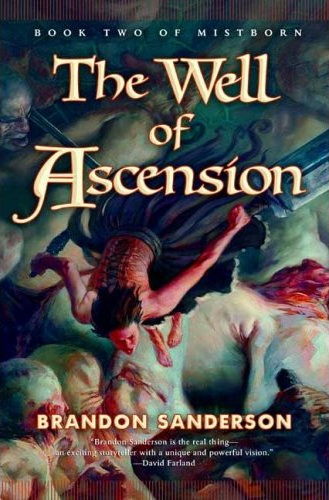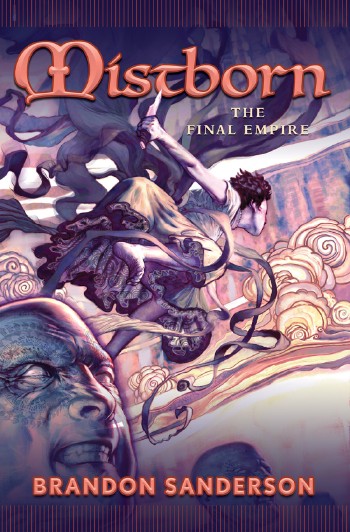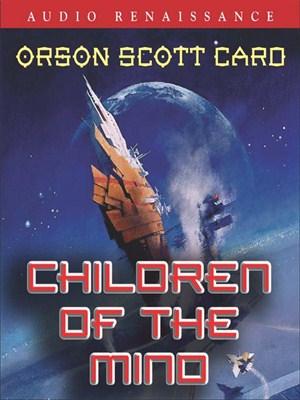
Just like that, Brandon Sanderson has turned into George R. R. Martin. A more appropriate title would’ve been ‘The Hell of Continuaton’. There’s no excuse to write such a dull, plodding sequel to a fairly exciting fantasy adventure. What happened? Imagine if a Grindcore band released a twinkly Post-Rock album but kept the noise and the screaming. Actually, that sounds too ambitious. If a Grindcore band did that, it’ll be a push towards new territories. Sanderson had no money for an editor.
Static paragraphs are a disease, especially in adventure stories. These are paragraphs in which literally nothing happens. All we get is the rambling of the narrator or of the character. Since the narrator is often 3rd-person omniscient, we don’t really care about its thoughts. This narrator doesn’t even exist. If it’s the rambling of the characters, a question arises. Why not just write in first person?
It’s a symptom I see in many rookie writers who lack confidence. They don’t see the reader’s point of view or understand what is necessary to them. They don’t understand art is an experience, not a collection of facts. Paragraphs teasing what will happen, what could have happened, what the characters are like litter the pages. As notes, they might be useful. By writing down who your characters are, you have a solid idea of what you should be writing. By writing down what might happen, you have a solid idea of what routes you can take. As a technique to avoid ‘just write the next scene’ writing, it’s brilliant.
These are just notes for a novel, not a novel itself. Bands don’t put all their jam sessions and demos smack in the middle of a song. Imagine if, in the middle of “One Step Closer”, Linkin Park put a random jam session that later gave birth to the chorus of “Numb”. Sure, it’s interesting but what is it doing in the middle of a punchy Nu Metal song? Any time an author puts rhetorical questions in a 3rd person narrative, he’s being a horrible author.
Narrative questions are always answered, so asking us ‘will he be able to save her’ is pointless. We’ll see in a few pages. As for philosophical questions, they must not appear since fiction is expression of philosophy, not an essay about it. I did put some rhetorical questions in this review. The purpose was to make you imagine, to focus your attention by varying sentence structure and expressing disdain at such techniques. In narrative prose, they make zero sense.
What’s odd is that it’s the only bad technique Sanderson falls into. In all other aspects, he remains fine. His story is still shallow, but he avoids the long-winding descriptions of Martin or his misogyny, or his multiple plot threads that go nowhere. Sanderson describes rooms using, at best, 3 sentences. It’s never profound, but he emphasizes the right details. The plot is also tightly focused, with a small arc inside the gigantic save-the-world one. The book was padded to 700 solely because of these static paragraphs. If Sanderson got rid of them, we would’ve been had 300-400 pages of a shallow but exciting story. Did Sanderson pad it so it would look cool on the Fantasy shelf?
As for the story itself, it’s just as shallow as the previous one. All hints of something deeper, more original are gone. As a role-player, I noticed there’s a scale between games heavy on playing a pesonality and games playing on skill. The latter are elaborate puzzle games with a bit of pretending, whereas the former are an improvised theater. The former are more fun, since they’re more emotionally engrossing and memorable. Whenever I jump into a game I always aim for that direction and find myself not doing anything. My character has a lot of skills which I’m supposed to use but forget about. I don’t care how good the paper says I am with a sword. I want to understand my character, get into his mindset and interact with other characters.
Sanderson comes from the opposite tradition. His magic system exists solely for RPG’s, with instruction manuals and technical information but little meaning. This is a world where people can influence emotions, store attributes yet the psychology of this never appears. I don’t buy the excuse that they all had to go into hiding. That’s just Sanderson avoiding confronting the meaning behind his magic. As a role-playing system, it seems exciting. Reading about it is dull.
All these details about what they push, how they push, how they recover strength is so dull. When someone tells you their character in their RPG has 80 STR, do you care? Does it make you want to play the game? The problem with writing about fictional fighting is that it’s so arbitrary. Sanderson dispenses a lot of physical facts about non-physical objects. Non-physical objects don’t have physical traits. All fiction is symbolic since in the end it’s just some ink on the page. The action scenes consist of unimportant physical information with nothing symbolic. Conflicts are elaborate chess games, with enemies having a weak point you need to use V.A.T.S. to target. One scene even features a dungeon crawl. To his credit, the final confrontation had some emotional depth.
His characters remain his strong point. Even if by this point they won’t ever have a complex psychology, they have personalities and distinct dialogues. His dialogues are the most excited parts and not just because dialogues are exciting by nature. He gives his characters obvious quirks that affect all of their speech patterns. Even when Ham isn’t musing philosophically, he has a more thoughtful tone. Breeze’s conceit is always apparent, sometime more and sometimes less. That’s why even if Sanderson’s story is, at its heart, shallow his characters are alive enough to make it exciting.
His story mode also eschew the typical long journey story mode for a more static one. Most of it is spent waiting for the big climax, but by sealing our characters in a small area he gives them a lot of room to interact. His story is less driven by action and more by character interaction. If there was any opportunity to launch his story into something truly special, it was here. Sadly, it padded by a lot of static paragraphs. The ending is also disconnected from the main story. Whereas the novel’s center is the siege, the ending brings back the Hero of Ages myth. Sanderson isn’t very good at splitting his books and dividing them into individual stories. That’s sad since they are here. He only needed to finish the book when the siege was over.
Sanderson doesn’t deliver on the promise of Mistborn. Then again, I heard this was typical, run-of-the-mill fantasy. Sanderson’s storytelling is more energetic, more character driven and his writing isn’t so stiff. It helped make the first book an exciting adventure, but this one is a good writer in search of an editor to help his writing give shape. I’ll still tackle the final book but I’m worried.
1.5 failed ascensions out of 5





